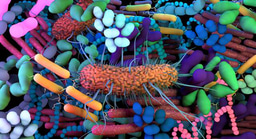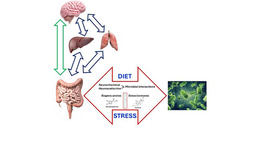Unraveling the Gut-Lung Microbiome Connection in Severe COVID-19: A Groundbreaking Investigation
Published in Microbiology
The COVID-19 pandemic has brought unprecedented challenges, revealing the critical role of microbiomes in shaping disease severity and recovery. Previous studies have reported that SARS-CoV-2 infection disrupts respiratory and gut microbiomes in hosts. Intriguingly, studies on long-term hospitalized patients showed the presence of intestinal-associated microbes in the respiratory tract, raising questions about the migration of microorganisms between these systems and their impact on clinical outcomes. Despite these observations, the mechanisms of gut-lung microbial interaction and their influence on COVID-19 progression remained unexplored.
In this study entitled “Impact of SARS-CoV-2 infection on respiratory and gut microbiome stability: a metagenomic investigation in long-term-hospitalized COVID-19 patients”, we sought to uncover the relationships between the gut and respiratory microbiomes in COVID-19 patients. Using next-generation sequencing (NGS), we analyzed sputum and fecal samples collected longitudinally from two severe COVID-19 patients. We found that one patient, who harbored Mycobacterium avium, exhibited accelerated recovery of microbiome stability, suggesting a possible role for specific microorganisms in promoting resilience and recovery.
To broaden our findings, we compared microbiomes from 32 healthy controls and 110 COVID-19 patients with varying disease severities. The results revealed profound shifts in the dominant microorganisms inhabiting the respiratory and intestinal tracts of COVID-19 patients. Notably, Bacteroides vulgatus (BV) emerged as a key microorganism enriched in severe COVID-19 patients. Our analysis suggests that BV plays a stabilizing role in gut-lung microecology by inhibiting the growth of pathogens such as Escherichia coli and Enterococcus and indirectly preventing the overgrowth of salivary streptococci. This dual action appears to help maintain a critical balance between the intestinal and respiratory microbiomes, potentially relieving the severity of disease progression.
In summary, this study provides the direct evidence of microbial migration between the intestinal and respiratory in COVID-19 patients and highlights its potential impact on disease outcomes. Our findings illuminate the intricate interplay between these two critical microbiomes, demonstrating that their stability is closely related to the clinical trajectory of severe COVID-19 cases. By identifying specific microorganisms associated with recovery and stability, this work offers a foundation for microbiome-based interventions that could complement existing treatments.
Follow the Topic
-
npj Biofilms and Microbiomes

The aim of this journal is to serve as a comprehensive platform to promote biofilms and microbiomes research across a wide spectrum of scientific disciplines.
Related Collections
With Collections, you can get published faster and increase your visibility.
Natural bioactives, Gut microbiome, and human metabolism
Publishing Model: Open Access
Deadline: Feb 20, 2026
Harnessing plant microbiomes to improve performance and mechanistic understanding
Publishing Model: Open Access
Deadline: Jun 01, 2026





Please sign in or register for FREE
If you are a registered user on Research Communities by Springer Nature, please sign in